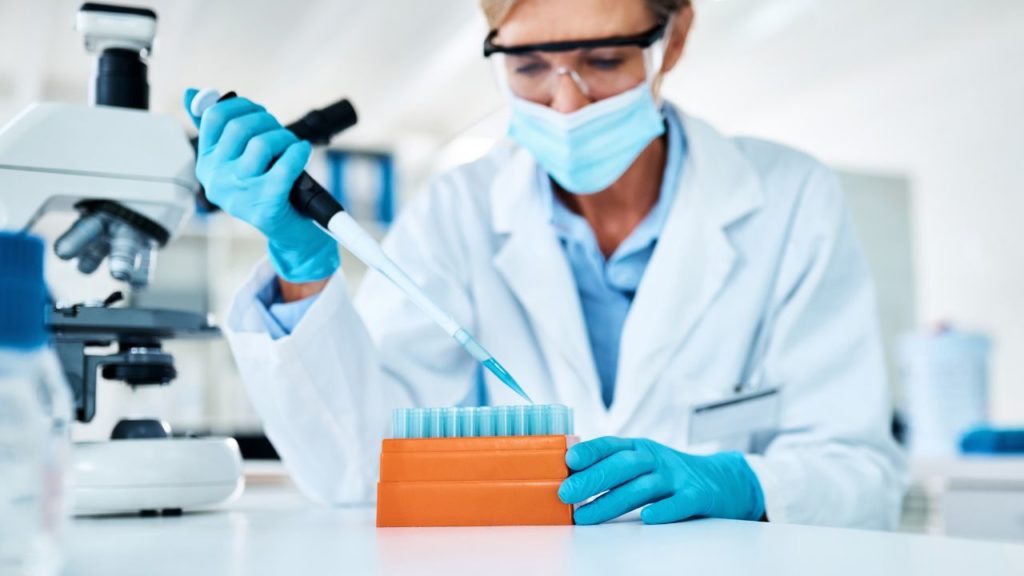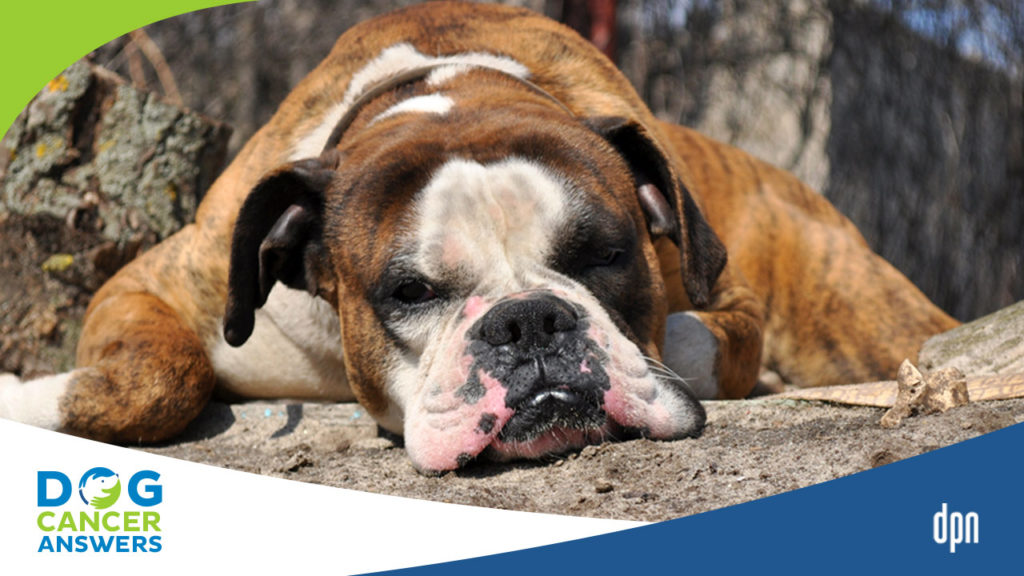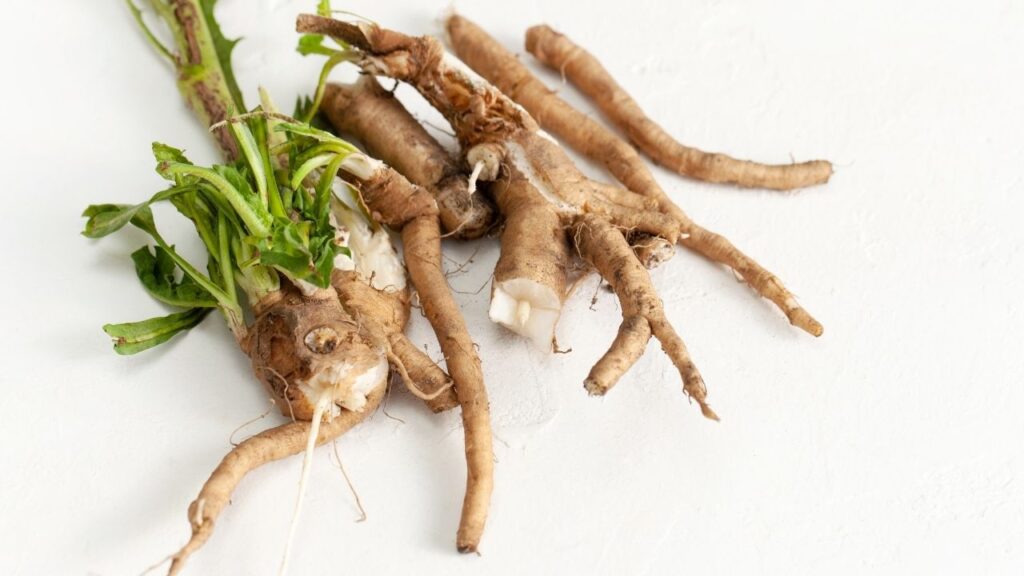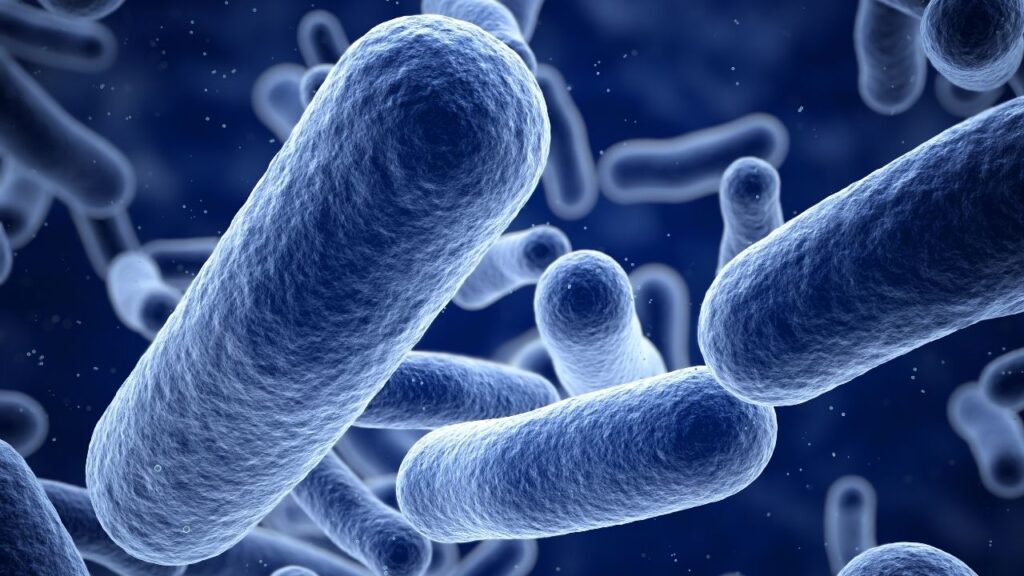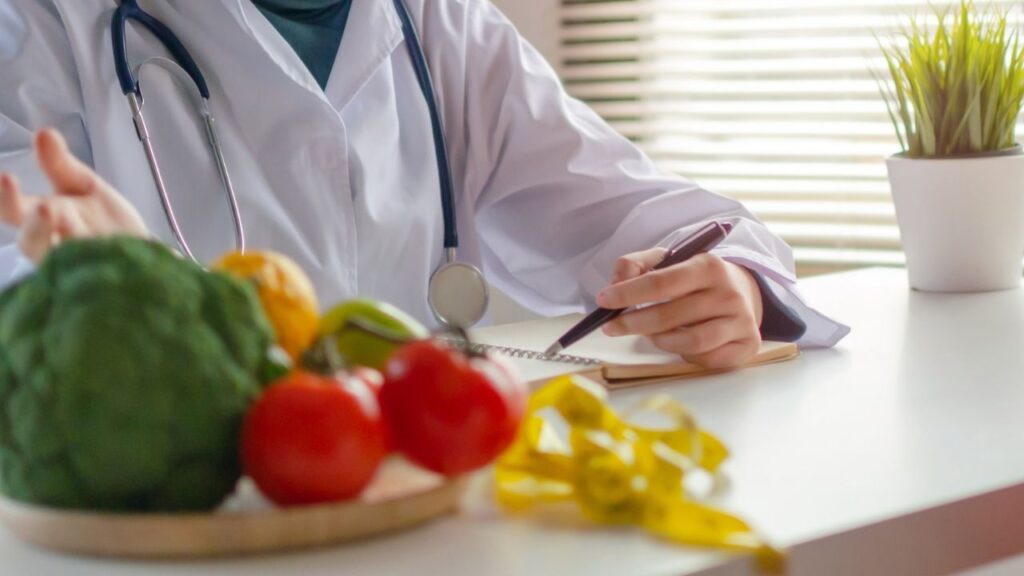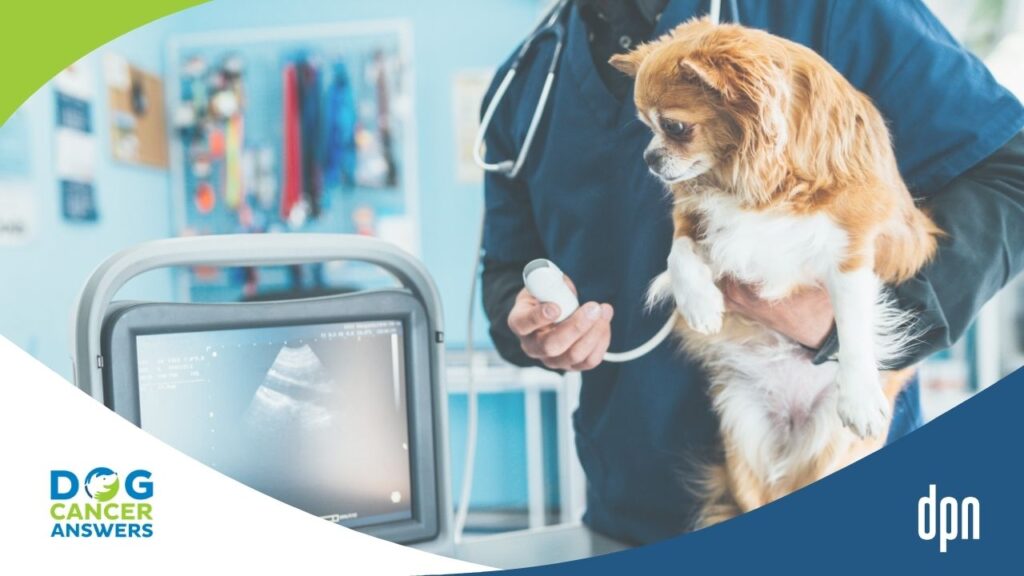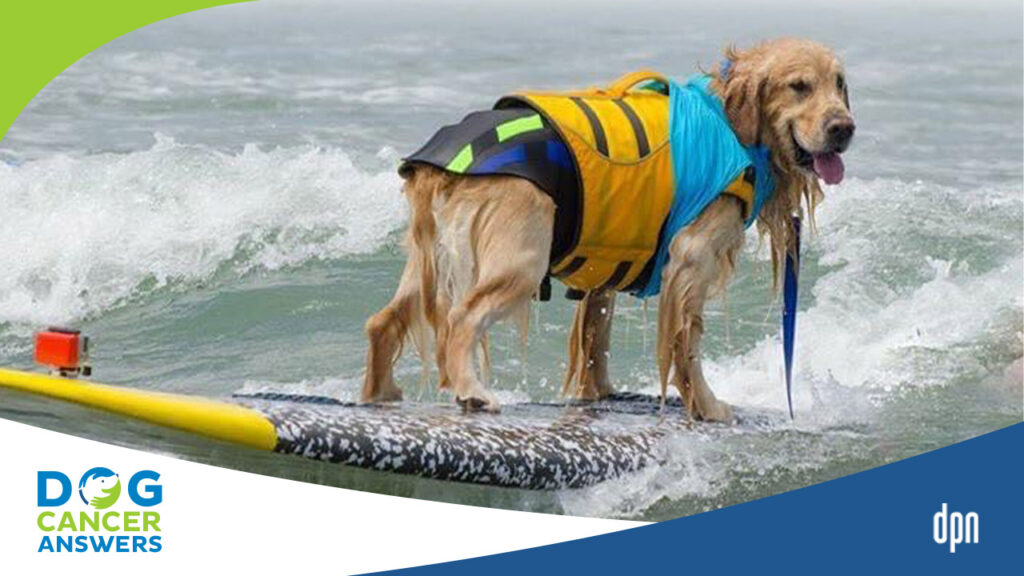EPISODE 159 | RELEASED March 21, 2022
Poop for the Cure: Your Dog’s Gut Bacteria and Cancer | Dr. Stephanie Culler
Can your dog’s poop help diagnose and treat cancer? It turns out the answer is yes.
SHOW NOTES
Dr. Stephanie Culler and the rest of her team have been studying differences in the gut microbiome of healthy people and people with cancer to find biomarkers that can detect or predict cancer development. After all, the gut plays a key role in the immune system
So where do dogs come in? Dogs and humans share 60-80% of their gut microbiome with humans! Because of this combined with dogs’ shorter lifespans, it is much easier and more efficient to study and develop therapeutics for the microbiome in dogs first. So Dr. Culler expanded their research to include both healthy dogs and dogs with cancer. Both humans and dogs will benefit from this research. But she still needs poop samples from more dogs with cancer!
Links Mentioned in Today’s Show:
Poop for the Cure (contact them to donate dog poop!)
Designing microbiome therapeutics to help cure cancer TEDx talk
[00:00:00] >> Dr. Stephanie Culler: When I think of a healthy microbiome, I think of a forest. When I think of these advanced stage cancer patients, I think of a desert. Very, very barren. They have limited kinds of bacteria and what’s there, they’re inflammatory microbes, these cancer causing microbes.
[00:00:18] >> Announcer: Welcome to Dog Cancer Answers, where we help you help your dog with cancer. Here’s your host, James Jacobson.
[00:00:26] >> James Jacobson: Hello friends, and welcome. Today’s episode may sound a little science fiction, but I promise you it is cool. And we’re talking once again about poop. Poop for the Cure. We are speaking with Dr. Stephanie Culler, who is a PhD and she studies microbes and how our gut bacteria impacts our immune system and also the immune system for our dogs and she is looking at ways that you may be able to test your dog for cancer by looking at the poop. It’s pretty interesting. Dr. Culler, thank you so much for being with us today.
[00:01:05] >> Dr. Stephanie Culler: Thank you for having me.
[00:01:07] >> James Jacobson: Did I get that right? You can actually look at poop and see what’s going on that may impact cancer?
[00:01:13] >> Dr. Stephanie Culler: Absolutely. That’s been our focus in the last four years of our company, Persephone Biosciences, where we’ve been looking at poop from hundreds of cancer patients nationwide. And, you know, it’s really goes down to the fact that the bacteria in our guts that make up the gut microbiome are there to promote a healthy immune system to essentially prevent and fight disease.
And we find that when they become damaged, they can actually cause cancer, and, um, more importantly, impact how well a cancer patient responds to treatment. And that’s very much our research. We’re focused on looking at the gut microbiome through poop – that’s the really only way we can do that – and then turning that data into new therapeutics.
[00:01:56] >> James Jacobson: Now I know that the gut microbiome is the "in" thing in science circles, right? I’ve heard people describe it as it’s like the great unknown from many, many years ago. Is that the way you view it?
[00:02:09] >> Dr. Stephanie Culler: Um, absolutely. You know, there’s a saying that, um, I always use from Hippocrates that all disease begins in the gut and he was around 2000 years ago. So he obviously knew something that it took us a very long time to realize. And and more and more with this cutting edge frontier, um, I would say new space of science, every day we hear about a new link about the microbiome impacting a disease and impacting virtually every aspect of our life, um, from be- actually before we’re born and then throughout that. And it, you know, not only is it there to really promote a healthy immune system, but it also plays an important role in extracting nutrients from our diet.
[00:02:48] >> James Jacobson: So define the microbiome for our listeners.
[00:02:52] >> Dr. Stephanie Culler: The microbiome are the microbes that line our GI track and serve to promote normal immune function to prevent and fight disease. It’s essentially trillions of bacteria that line our GI tract.
[00:03:05] >> James Jacobson: Trillions with a T.
[00:03:06] >> Dr. Stephanie Culler: Trillions. Trillions with a T, and sometimes can weigh, weigh several pounds depending on how large of an individual somebody is.
[00:03:15] >> James Jacobson: And these bacteria are how small?
[00:03:19] >> Dr. Stephanie Culler: Very, very tiny. They’re microscopic. So you can’t really see them with the naked eye.
[00:03:24] >> James Jacobson: Okay. So if a heavy person has several pounds of this, that sort of equates to the trillions of these things.
[00:03:34] >> Dr. Stephanie Culler: Yes.
[00:03:34] >> James Jacobson: Now, are they all of the same type or are there a whole bunch of different things like, congregating inside of our gut?
[00:03:42] >> Dr. Stephanie Culler: Fantastic question. Um, what we see in the human gut microbiome, about a thousand different kinds of bacteria. And you and I may have the same type of species, but then as we dig further, there are differences at the screen level. So each of us, um, our microbiomes are actually quite unique.
[00:04:00] >> James Jacobson: Okay. So is it like a thumbprint, a fingerprint? Like there are no two snowflakes that are the same?
[00:04:05] >> Dr. Stephanie Culler: Absolutely. It’s very much a fingerprint and it’s a fingerprint – unlike our own genetic code, we can’t really change our genetic code. Yes, gene therapy is aiming to do that, but we can easily change our gut microbiome.
You know, these microbes, we can introduce probiotics, we can take antibiotics that could kill them, but we can very much manipulate that. And over our lifetimes, that could be an evolving dynamic fingerprint.
[00:04:31] >> James Jacobson: And does that fingerprint change on a day to day basis or is it slower?
[00:04:35] >> Dr. Stephanie Culler: It’s quite slow. We find for healthy individuals, it’s very, very stable, for years in fact. But what can change is the impact of diet. So when you change your diet, you can actually be changing your flora and what that flora makes in the gut microbiome. So diet is actually a big lever at changing your microbiome.
[00:04:56] >> James Jacobson: Okay. So again, we’re talking about the human species, and we’ll get to dogs in a moment because it’s kind of fascinating how you are moving from humans to dogs or they’re assisting one another. But I think it just, in terms of really understanding it from our own perspective, you talked about antibiotics ’cause those kill the microbiome. That’s not the intention of antibiotics.
[00:05:14] >> Dr. Stephanie Culler: Exactly.
[00:05:15] >> James Jacobson: It’s sort of a by-product of giving antibiotics. And then probiotics are also all the rage. You’ve been talking about them. You can find them, there are some cheap ones or some expensive ones. There’s a whole bunch of hype around probiotics. What are your thoughts on probiotics?
[00:05:32] >> Dr. Stephanie Culler: That’s a fantastic question. So I spend a lot of time talking about this in fact, and actually talked about it in a Ted Talk a few years ago at the Salk Institute.
[00:05:40] >> James Jacobson: We’ll put a link to that Ted Talk in the show notes from today’s episode.
[00:05:43] >> Dr. Stephanie Culler: Thank you. And where I share a lot more about diet and its impact on the microbiome. But really how we, I think about probiotics are bacteria that comes in the form of food, like fermented foods. Those are natural probiotics. What you can go to the supermarket right now or at the pharmacy and buy off the shelf, most of those they’re very limited kinds of bacteria, number one, but number two, we don’t know about their manufacturing quality. These are under supplements, so there is no real FDA supervision of them. But furthermore, what we see when we look at the microbiome, I mentioned a thousand different species.
What’s out there commercially, may be not even existent in our human microbiome, may have zero relevance to our gut microbiome. And and most of it doesn’t represent the key important functions. So there’s really a whole world to be had here in terms of product development and making new probiotics that actually come from the human gut microbiome.
[00:06:44] >> James Jacobson: Wow. Okay. So let’s tease that apart a bit. So it doesn’t sound like you’re a big fan of probiotics in general.
[00:06:52] >> Dr. Stephanie Culler: From fermented foods. I, I think really naturally-
[00:06:55] >> James Jacobson: So not pills.
[00:06:56] >> Dr. Stephanie Culler: Yeah.
[00:06:56] >> James Jacobson: But like-
[00:06:56] >> Dr. Stephanie Culler: Not pills.
[00:06:57] >> James Jacobson: -taking kimchi, sauerkraut.
[00:07:00] >> Dr. Stephanie Culler: Kimchi, kefir, sauerkraut, exactly. Yogurt.
[00:07:04] >> James Jacobson: Okay.
[00:07:04] >> Dr. Stephanie Culler: Yeah.
[00:07:05] >> James Jacobson: Yogurt. Okay. So things that are more natural than a pill, I guess. And in terms of probiotics, a lot of people talk about, well, probiotics are important, but you need to feed those probiotics with prebiotics.
[00:07:16] >> Dr. Stephanie Culler: Yes.
[00:07:17] >> James Jacobson: What say you about that, Doctor?
[00:07:19] >> Dr. Stephanie Culler: Absolutely. The prebiotics are so important and a lot of the reason why we see tremendous damage in the microbiome, which actually has a technical term called dysbiosis, that is real. An unhealthy gut is real. We see microbiomes with a lot of bacteria that cause inflammation, bacteria that cause cancer. There actually is a direct link between specific bacteria and cancer. They produce toxins. And even those that we know to be infectious, like pathogens. And so it’s really important in our diets – we suffer from this in the United States – we don’t have enough fiber. Fiber feeds the microbes, they feed the good microbes. Sugar, for example, that feeds the bad ones. That feeds those that cause inflammation, cause cancer, pathogenic microorganisms love sugar, for example. And so eating a really balanced diet with a lot of vegetables, obviously fruits, but very much vegetables, um, and those that are very high in fiber content, is absolutely critical towards maintaining gut health.
[00:08:24] >> James Jacobson: Okay, well now let’s turn this to cancer and then to our four legged friends. You said that there is proven connection between dys, what do you call it? Dys…
[00:08:35] >> Dr. Stephanie Culler: Dysbiosis.
[00:08:36] >> James Jacobson: Dysbiosis and and cancers. What type of cancers are connected with bad microbiome?
[00:08:42] >> Dr. Stephanie Culler: Virtually every cancer. We have been profiling hundreds of patients nationwide with a variety of cancers. I think we’ve looked at upwards of 16 different cancers, mainly solid tumors. And you know, this what we called dysbiosis, it’s a very damaged inflamed state. When I think of a healthy microbiome, I think of a forest. When I think of these advanced stage cancer patients, I think of a desert, very, very barren. They have limited kinds of bacteria and what’s there are very, they’re inflammatory microbes, these, these cancer causing microbes, and, you know, a lot of the reason why they have these very damaged microbiomes are, of course, maybe because of cancer, but also because of the types of treatments. You know, receiving chemotherapy, also antibiotics because a lot of these cancer patients, unfortunately, they’re very prone to infections.
Their immune system is so weak and we see that they take several rounds of antibiotics and over time they start to lose a lot of their good bacteria, and their microbiome ecosystem essentially collapse. The forest goes away and you are left with a desert. And so what we find then in those patients with this damaged microbiome, is that they can’t really mount a healthy immune response to fight their cancer or even respond effectively to curative drugs like Keytruda, you might’ve seen some commercials, it’s an immunotherapy drug that relies on that patient’s own immune system. But if their own immune system doesn’t really work that well, they’re not going to respond to treatment. And so for us at Persephone, what we’re trying to do is repair those damaged microbiomes.
We put back the missing bacteria, repair that so it looks like a forest, it acts like a forest. They can have an immune response to then fight their cancer and respond effectively to treatment. And so our therapy is essentially an oral pill that contains the missing gut microbes to really improve response for these patients.
[00:10:41] >> James Jacobson: Dare I say it’s a probiotic? Is it a probiotic?
[00:10:46] >> Dr. Stephanie Culler: Well they’re bacteria that have been engineered, and none of the bacteria you can find at Walgreens, for example.
[00:10:52] >> James Jacobson: Okay.
[00:10:52] >> Dr. Stephanie Culler: These are, are very new bacteria. Yeah.
[00:10:55] >> James Jacobson: It’s a really different type, but it is effectively-
[00:10:58] >> Dr. Stephanie Culler: It is. It is.
[00:10:58] >> James Jacobson: -a type of probiotic.
[00:11:00] >> Dr. Stephanie Culler: Yes.
[00:11:00] >> James Jacobson: Okay.
[00:11:00] >> Dr. Stephanie Culler: Yes.
[00:11:01] >> James Jacobson: Okay. I want to go back to this whole concept of cancer, and an unhealthy gut microbiome. And the question is, is it like which comes first, the chicken or the egg? ‘Cause you were saying that maybe the treatments are damaging the biome, or is it the other way around?
[00:11:16] >> Dr. Stephanie Culler: You know, it’s difficult to say. We are looking at, for example, we have a very large study in partnership with Johnson and Johnson, to look at people who might be at risk for cancer, to look at their microbiomes.
We may be able to start to see how the microbiome impacts and causes cancer, but it’s very difficult to catch that. Of course we want to prevent cancer and we think over time we will, but it’s, it’s difficult to ascertain chicken versus egg. We do know that treatment has an impact on the microbiome, and we understand that the microbiome has an impact on their disease, but for us, we’re not really trying to completely unravel that.
We’re really just trying to understand, well they get to this state of a very imbalanced, this damaged microbiome, what can we do to fix that? And potentially, you know, many years prior, can we start to detect signs that they may get cancer from their microbiome and then develop a therapeutic that can prevent that entirely.
[00:12:17] >> James Jacobson: Okay. Let’s turn to our four legged friends as previously promised. What is the connection and how are you bringing dogs into this, because you’re very much human focused?
[00:12:29] >> Dr. Stephanie Culler: Obviously we all have pets. And so we’re very passionate about our four legged friends and, you know, we, in terms of developing a therapeutic and partnering with the FDA to get our therapeutics into the clinic to treat advanced stage cancer patients, along the way, we need to do animal studies prior to giving them to, um, to patients in clinical trials.
And so traditionally, you know, in drug development, you use mice. And mice have very little in common on their microbiomes with us, maybe less than 4%. They’re really not a great model organism for us to evaluate our therapeutics or even the biology of the microbiome, which you know, is still very, very new in terms of science. And what we’ve seen from the literature that really caught our eye and something that we’ve been thinking about for the last few years, is how similar man’s best friend’s microbiome is to ours. You know, they share our environment, they drink our water, they eat our food. They’re with us all the time. And their microbiome has about 60% in common with our gut microbiome. Much, much, much higher than, than mice. And in fact, in some of our recent studies that, where we’ve collected dog poop at the local dog park, you know, upwards of 80% in common with us.
So, so quite significant. And for us, we think of this as an opportunity to evaluate our therapeutics in dogs with cancer. The dog immune system is much closer to ours than mice, for example. And so it could be a win-win. Not only do the therapeutic we develop for humans, you know, we could have a better success rate of treating humans, but we could also come up with a new way to treat dogs with cancer and maybe even ideas on how to prevent it, and prevent chronic illnesses through the microbiome.
[00:14:24] >> James Jacobson: Stephanie, this is fascinating. We’re gonna take a break, but when we come back, I want to talk about how we can send our poop to you.
[00:14:31] >> Dr. Stephanie Culler: Thank you.
[00:14:34] >> James Jacobson: We’ll be right back.
We are back with Dr. Stephanie Culler. Dr. Culler, so how do we get our dogs’ poop, if most of the people who are listening to this podcast have a dog with cancer, how do we get you to look at our dog’s poop? And would that be helpful?
[00:14:49] >> Dr. Stephanie Culler: Absolutely. We are looking for dog poop of at least a hundred to 200 dogs from those with cancer. And so just check out PoopForTheCure.us. That’s our main-
[00:15:02] >> James Jacobson: Wait, wait. The .com wasn’t available?
[00:15:04] >> Dr. Stephanie Culler: The .com was not available. I think somebody at Oracle has it. And you know, if that person is listening, I’d like to buy it from you. Um, in fact, it’d be great if you could just give it to us, so.
[00:15:16] >> James Jacobson: PoopForTheCure.us. Okay.
[00:15:18] >> Dr. Stephanie Culler: US.
[00:15:19] >> James Jacobson: Okay. So go to that website and what are people going to find there?
[00:15:22] >> Dr. Stephanie Culler: They’re gonna’ find out about the work that we’re doing in humans, but also we’re going to have a web page there to enter information about your dog with cancer.
[00:15:29] >> James Jacobson: Okay. And is there any cost to submit your poop?
[00:15:33] >> Dr. Stephanie Culler: No. In fact, we will give you a gift card for your poop.
We will ship out a easy to use poop kit. All you gotta do is drop your little baggy with the poop and ship it to us overnight. And, um, our researchers then get to work with it.
[00:15:47] >> James Jacobson: What kind of a gift card?
[00:15:49] >> Dr. Stephanie Culler: Um, I just, you know.
[00:15:51] >> James Jacobson: Important things.
[00:15:53] >> Dr. Stephanie Culler: A $20 gift card.
[00:15:54] >> James Jacobson: Okay, awesome. Okay. These are the important questions people are wondering.
[00:15:57] >> Dr. Stephanie Culler: Yes, yes.
[00:15:57] >> James Jacobson: What do I get for my dog’s poop, ’cause my dog can poop all day long.
[00:16:00] >> Dr. Stephanie Culler: Yes.
[00:16:01] >> James Jacobson: Okay. So what is the hope that when you receive 200 samples of poop, I won’t say bags of poop, but when you receive 200 samples of poop sent to you, delightfully by, uh, overnight courier, what is your hope? What do you hope to get out of it? And how might it help us?
[00:16:17] >> Dr. Stephanie Culler: What we’re hoping to see is the same kind of damage. Maybe not to the same extent as we see in advanced stage cancer patients, um human patients. But we’re trying to see that there is damage, that these, there’s a sign of chronic inflammation that may have led to the cancer for example. These are what we call biomarkers. We’re trying to see if there’s similar biomarkers to the human data set and that actually would lend ourselves to be much more successful, that we can translate what we’re doing in humans here to dogs.
[00:16:46] >> James Jacobson: So it’s a way of contributing to your database of science. It’s not like you’re going to say, ah, here’s a pill to use, but this is going to increase the knowledge.
[00:16:56] >> Dr. Stephanie Culler: Exactly. We’re really at the frontier. We’re really at the beginning of our knowledge base. There actually isn’t many scientific publications on the dog microbiome. If there are they’re under like 20 dogs, for example. So this may be one of the largest public, you know, once we publish it, um, could be one of the largest datasets known.
[00:17:14] >> James Jacobson: Awesome. And it’s just as simple as requesting one of those kits and sending off your poop. Is there a particular type of cancer you’re interested in?
[00:17:23] >> Dr. Stephanie Culler: No, we’re open to all comers, just dogs that have been diagnosed with cancer, and any information that the pet parent has on it.
[00:17:30] >> James Jacobson: And what is the ultimate goal of these studies?
[00:17:35] >> Dr. Stephanie Culler: The ultimate goal really is a few things. One, we want to see if dogs, because they’re now receiving the same therapies as us humans in cancer, if dogs could be a great platform to evaluate our new therapeutics. And second, to come up with potentially, you know, first in class therapeutics for the microbiome for dogs. That doesn’t exist.
[00:17:57] >> James Jacobson: So in the meantime, as a microbiome researcher, and I presume a dog lover, do you have a dog?
[00:18:03] >> Dr. Stephanie Culler: I don’t, but my parents do. We have a small apartment. But I have a cat. But I did grow up with dogs.
[00:18:09] >> James Jacobson: So what would you suggest feeding your dog to help improve their natural microbiome? Because I don’t think my dog is gonna eat kimchi or sauerkraut.
[00:18:18] >> Dr. Stephanie Culler: Exactly. I don’t have a suggestion yet, and that’s what we’re hoping to get out of the data, because diet is actually the first set of questions that we ask. We’re very much in trying to understand how kibble versus a raw food diet, for example, impacts the microbiome and potentially could cause inflammation and chronic issues.
We know that a lot of dogs have GI problems. You know, everyone’s experienced diarrhea with their dog, for example, but also like skin issues, dermatitis. You know, that itching can lead to pretty significant issues. We think that the microbiome is playing a role there because of the connection to the immune system.
So we are trying to understand how does diet impact microbiome, how can we potentially improve diet, but also how do we then maybe modulate the microbiome by incorporating new strains of probiotics. That’s actually kind of the next wave of data and science that we’re hoping to do here. And then that could lead to a non-therapeutic consumer product potentially.
[00:19:17] >> James Jacobson: That’s awesome. I know, I had a dog who recently passed away of cancer, but she really loved Greek yogurt. Like, so whenever there was Greek yogurt, she was begging. So she got a little bit and uh, certainly wasn’t doing any harm and may have done some benefit. Well, that is fascinating. Dr. Culler, if folks want to get in touch with you, what is the best way?
[00:19:39] >> Dr. Stephanie Culler: Just visit our website and we have some information on how to contact us there.
[00:19:44] >> James Jacobson: Okay. Dr. Stephanie Culler, PoopForTheCure.us. Thank you so much for being with us.
[00:19:50] >> Dr. Stephanie Culler: Thank you for having me.
[00:19:54] >> James Jacobson: Poop for the Cure. I love it. And it’s great to know that it’s so easy for our dogs to all contribute to this body of research. Pretty interesting. I want to thank Dr. Culler for being on our show today, and I want to thank you most of all for tuning in and listening. We have an entire back catalog of shows that you may be interested in. Please check out our website at DogCancerAnswers.com. And if you enjoyed this show, please tell a friend about it, or your veterinarian, or both your veterinarian and a friend, and maybe your vet is a friend. I want to thank you again for joining us today. And on behalf of all of us at Dog Podcast Network, I want to wish you and your dog a very warm, Aloha.
[00:20:42] >> Announcer: Thank you for listening to Dog Cancer Answers. If you’d like to connect, please visit our website at DogCancerAnswers.com or call our Listener Line at (808) 868-3200. And here’s a friendly reminder that you probably already know: this podcast is provided for informational and educational purposes only.
It’s not meant to take the place of the advice you receive from your dog’s veterinarian. Only veterinarians who examine your dog can give you veterinary advice or diagnose your dog’s medical condition. Your reliance on the information you hear on this podcast is solely at your own risk. If your dog has a specific health problem, contact your veterinarian.
Also, please keep in mind that veterinary information can change rapidly, therefore, some information may be out of date. Dog Cancer Answers is a presentation of Maui Media in association with Dog Podcast Network.


